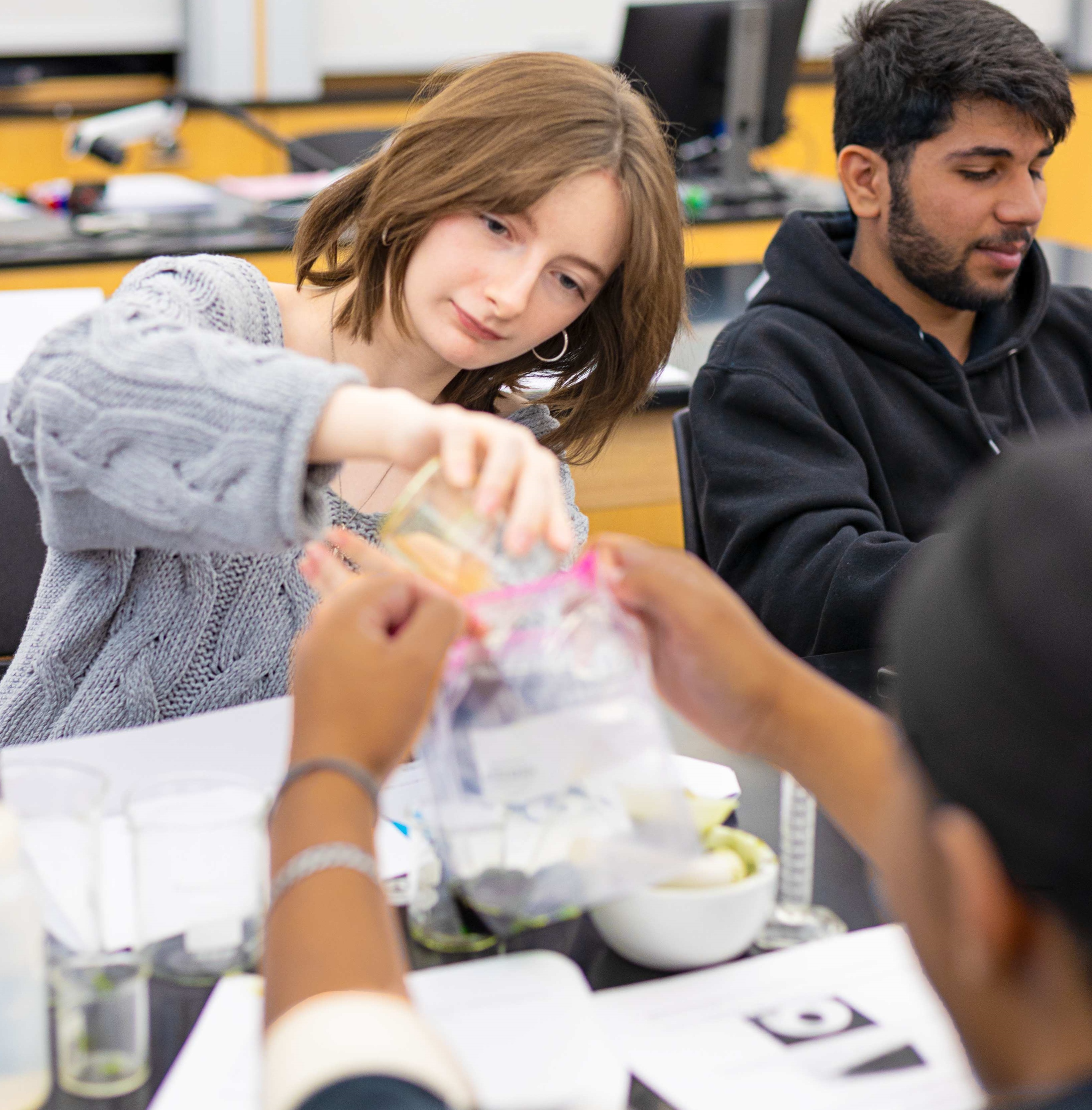National Science Foundation Tabs NSC for Two Innovative Projects to Advance STEM Education

The U.S. National Science Foundation (NSF) is investing $14.5 million in the inaugural set of awards through its Innovation in Two-Year College in STEM Education (ITYC) program, and North Seattle College will play a key role in delivering on that effort. The college is participating in two of the 35 projects awarded by the NSF, which went to institutions in 18 states and the District of Columbia.
The aim of ITYC is to support potentially transformative projects that will advance innovative, evidence-based practices at two-year colleges nationwide in science, technology, engineering and mathematics (STEM) education. The projects are separated into two tracks: one focused on the academic experiences of two-year college students, and the other on leveraging institutional strengths and innovation.
North Seattle College is participating in one project on each track:
- A Research-based Intensive Summer Bridge to Build STEM Identity and Retention in Incoming Community College Students (track one)
- Incorporating Civic Engagement in Undergraduate STEM: Working to Enable and Sustain Transformation (track two, in collaboration with Bellevue College)
Summer Bridge Program at North Seattle College
North Seattle College biology faculty member Ann Murkowski is principal investigator for the summer bridge project, along with co-principal investigator and chemistry faculty member Dr. Heather Price. Central to the project is an intensive, research-based, week-long program for incoming STEM students.
The project aims to create thoughtfully supported opportunities for students to conduct authentic research at the interface of air quality and social justice in their own communities. The project will iteratively design, implement and assess a week-long experience while directly supporting the success of 60 aspiring STEM students. It will advance knowledge about how best to ensure that incoming STEM students start their journeys with a powerful sense of belonging and identity, essential skills and institutional knowledge, and a supportive peer group.
Incorporating Climate Justice and Civic Engagement in Undergraduate STEM
Dr. Price is also co-principal investigator on the civic engagement project, working with principal investigator Dr. Sonya Doucette of Bellevue College. It grew out of an existing grant Drs. Price and Doucette will complete this month (Enhancing Community College STEM Teaching through Faculty Development).
That previous grant, Climate Justice in Undergraduate STEM Incorporating Civic Engagement (CJUSTICE), focused on faculty development to help integrate climate justice and civic engagements into STEM courses at North Seattle and Bellevue colleges. It aimed to broaden the participation of women and racial and ethnic groups underrepresented in STEM. The new grant expands this work and will help develop regional faculty leaders in Oregon and California.
Of note, ITYC is a new program at the National Science Foundation developed and led by Dr. Kalyn Owens, a chemistry faculty member at North Seattle College who is currently serving as a rotating program officer at the NSF.
“It’s fantastic to see all of Kalyn’s hard work to advocate for two-year colleges at the NSF pay off in such a tangible, lasting way,” said Murkowski. “It truly is having an amazing impact on STEM education nationally.”
NSF Director Sethuraman Panchanathan noted the critical role community colleges play in training people from all parts of the country for a variety of STEM careers, including future scientists, engineers and technicians.
"The Innovation in Two-Year College in STEM Education program is essential to how we expand pathways and opportunities so that more talented people from every part of the nation have the opportunity to make their way into STEM,” he said. “I'm pleased that Congress recognized the critical role of community colleges in the 'CHIPS and Science Act of 2022' and the foundation they provide for educational opportunities. Programs like ITYC are how we build on that foundation to reach more young people who have bright futures ahead of them in the STEM community."